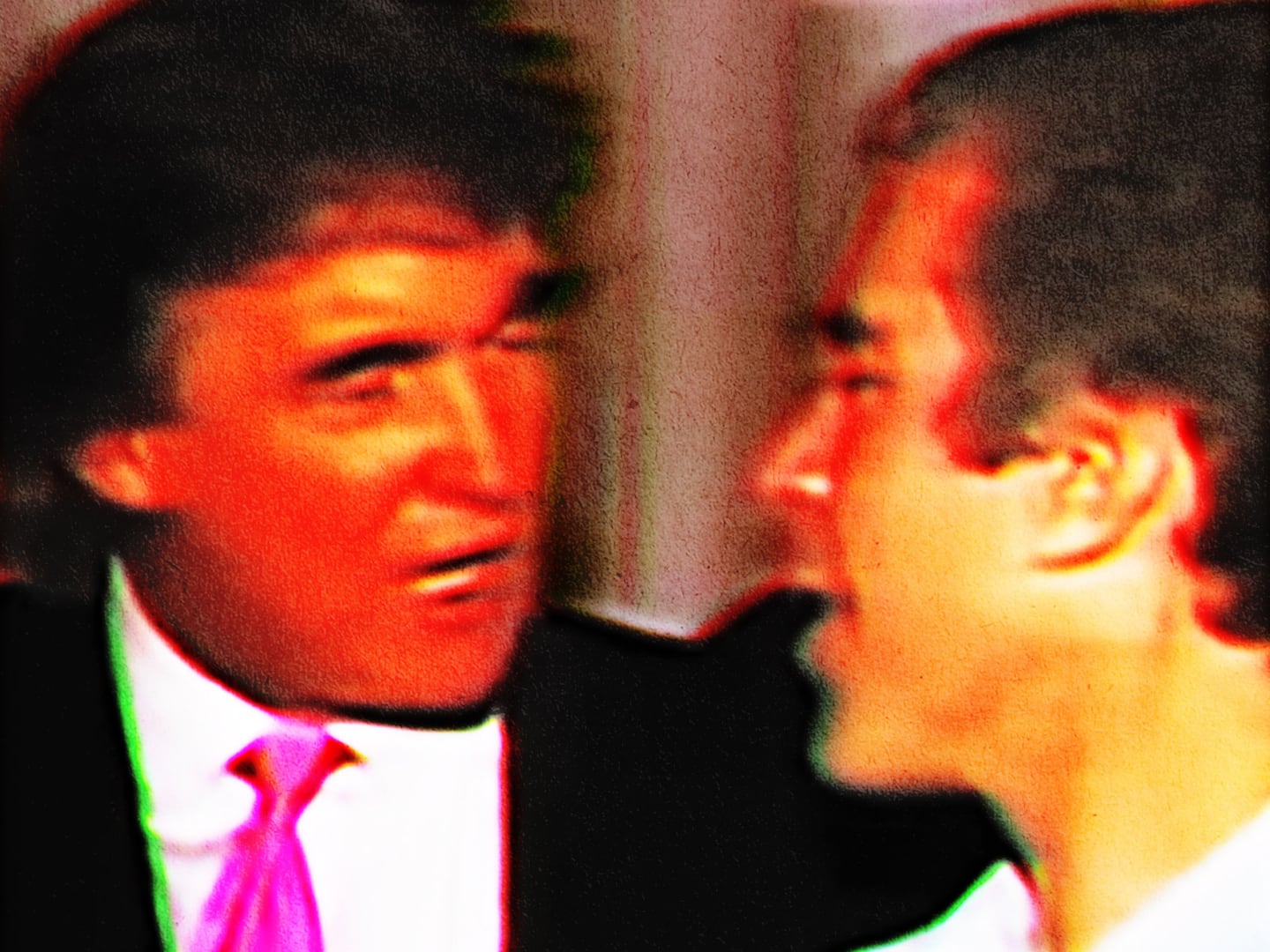Former Florida senator Bob Graham caused a stir when he used the term “aggressive deception” to describe the FBI’s treatment of 28 pages from a 2003 congressional inquiry into the 9/11 attacks.
The word choice was intentional, the co-chair of the investigation of the 9/11 terrorist attacks told The Daily Beast, because to Graham, what the FBI did was worse than the conventional Washington cover-up.
“Cover-up is a fairly passive action. You put something away and keep it out of the vision of other people who might wish to see it,” Graham explained. “Aggressive deception is where you try to change the narrative in an untruthful way, and then you keep the material that would provide the truth away from the people. So the only thing they see and are exposed to is the false narrative.”
It’s an explosive charge, a hair’s breadth away from calling the highest law enforcement officials liars, but when Graham lays out the sequence of events that brought him—a former chairman of the Senate Intelligence Committee— to level such a broadside, his ire is understandable.
The last few years have pitted him against not only the FBI but also a range of government agencies and officials determined to keep under wraps information about Saudi involvement in the 9/11 attacks, which he believes the public has the right to know.
For Graham, getting this information to the public has been a lonely crusade—until recently. He finally succeeded, after months of trying, in getting an appointment scheduled for today with Director of National Intelligence James Clapper, who is overseeing the administration’s review of the 28 pages with an eye to releasing them.
Former Navy Secretary John Lehman, a member of the 9/11 Commission, told The Guardian that there is “clear evidence” that Saudis working for the Saudi government aided the hijackers, joining other Commission members calling for the public’s right to know.
After a 60 Minutes segment aired last month on the 28 pages, the White House called to tell Graham the decision would be made soon. When he pressed for a firmer deadline, he was told one to two months.
Graham, who keeps meticulous diaries that account for his time, concluded, “That brings us to the second week of June.”
Still, he cautions the time line is not a guarantee of release, but rather a decision on whether or not to release the pages. Some of the 28-page chapter was not classified, but it was redacted, and he had it in front of him when we talked on the phone.
“Page 395, part 4, Finding, Discussion and Narrative regarding Certain Sensitive National Security Matters,” he read. Page 395 is the first page of that chapter, and after that with few exceptions there is blank page after blank page, he said. One statement that appears on page 395 says it is possible that these kinds of connections between 9/11 and foreign sources “could suggest as written in a CIA memorandum INCONTROVERTIBLE EVIDENCE (emphasis is Graham’s) that there is support for these terrorists” and then it is redacted.
“I happen to know what the balance of that section is but I can’t tell you,” he says. “If the 28 pages come back with that kind of redaction, their value will be reduced.”
Almost a decade after putting the investigation to bed, Graham got pulled back into the 9/11 probe in 2011 when writers researching a book on the 10th anniversary of the attacks discovered that a well-off Saudi family living in a gated community in Sarasota, Florida, had contact with three of the four 9/11 pilots, including Mohammad Atta.
As The Daily Beast’s Shane Harris detailed, the information was uncovered when neighbors recognized the hijackers from their photos as frequent visitors and told law enforcement.
“FBI found direct ties between 9/11 hijackers and Saudis living in Florida: Congress kept in dark,” read the headline in a September 2011 Florida Bulldog piece that ran in The Miami Herald.
The FBI field office in Tampa quickly refuted the story, claiming that a six-month investigation had found no relationship between the hijackers and the family, and that all documents had been turned over to the 9/11 Commission and the JICI (Joint Inquiry into Intelligence Community Activities) before and after the terrorist attacks of 9/11.
That was the inquiry Graham chaired, and he couldn’t recall getting any information about Saudi involvement in Sarasota. He called Porter Goss, his co-chair at the JICI, who had been a CIA agent and later director, “So he knows the territory,” Graham said. Goss didn’t recall any such info and neither did Lee Hamilton and Tom Kean, who co-chaired the 9/11 Commission and said they turned over all documents to the National Archives.
Graham had a search done of the Archives and the Sarasota information was not there. He called the security officer for the Intelligence Committee and was told he needed dates and file numbers for a search. He called the FBI in Tampa to make the request, and about a month later, in October 2011 after the Miami Herald story had run, Graham checked in with the security official in Congress. A civil service employee, not a political appointee, he showed Graham the two files that had belatedly arrived from Tampa FBI, one from early in the investigation, and the other at its end.
The reports directly contradicted what the FBI had said publicly. “The agent in charge wrote (in the first report) that the investigation was NOT (Graham’s emphasis) completed and he suggested lines of several inquiries,” Graham recounted. “In the second file, he also wrote in very declarative language there was contact between the Saudis and three hijackers.”
Soon after reading those files, Graham and his wife flew into Dulles Airport for Thanksgiving with a daughter who lives in Virginia.
To their surprise, two FBI agents met the couple at the gate and guided them to where a third “higher up” agent was waiting to speak to Graham.
At first, Graham said, he was encouraged as he was escorted to the FBI’s office at the airport, thinking maybe there had been a breakthrough. The FBI placed his wife, Adele, in a room by herself. When she asked for something to read, they gave her an FBI Training Manual.
Then Deputy Director Sean Joyce, accompanied by a young female agent and a middle-aged Justice Department attorney, “told me basically everything about 911 was known and I was wasting my time and I should get a life,” recounts Graham.
Having just read those contradictory FBI files from the Tampa office, Graham pushed back, only to be told the FBI had “other information that put what I had read in a broader context and would lead to a different conclusion.”
Fair enough, Graham said. Can I see this information? Joyce asked the young female agent to get the materials that provided the context, and a date was set for after Thanksgiving to meet in the FBI’s downtown Washington office.
Graham arrived at the agreed upon time but when Joyce came in, he said the meeting adjourned. He also told Graham to stop calling the Tampa agent who had authored the memos, and who had been transferred to Honolulu.
“And that was the end of that,” says Graham. “The meeting ended before it began.”
“Not everyone is shocked that the FBI is not truthful,” Graham says with wry humor, and he credits investigative reporter Dan Christensen, founder of the Florida Bulldog (www.floridabulldog.org), with filing a FOIA (Freedom of Information Act) request to get the FBI files. The FBI resisted, claiming the files were protected under a privacy exemption.
“The three hijackers are dead, and the family is back in Saudi Arabia. Whose privacy are we talking about?” Graham exclaims, incredulous.
The judge rejected that motion along with another equally unbelievable claim that the FBI didn’t have any documents to disclose after a six-month investigation. Finally, in July 2014, the FBI turned over 80,000 pages and, as The Daily Beast reported last week, a federal judge is poring over them to determine which ones warrant public release.
The FBI declined to comment when asked by The Daily Beast to respond to Graham’s charge of “aggressive deception.”
National security is the reason to de-classify the 28 pages, says Graham. “I think the country is paying a real price for withholding this information, emboldening them [the Saudis] to be the primary financiers of terrorists and the primary recruiters of terrorists through their madrassas, and this failure to hold them to account has been extremely damaging,” says Graham.
Whatever the decision on the 28 pages, it comes after a years’ long odyssey that in Graham’s view comes from the top and reflects “a clear directive that had gone out from the White House to avoid embarrassing the Saudis because the CIA, FBI, Department of Justice, Department of Treasury, Department of State, all these agencies wouldn’t be playing off the same sheet of music if the composer didn’t want it, and the composer lives at 1600 Pennsylvania Avenue.”
CIA Director John Brennan recently said he was “puzzled” by the remarks of Graham and others because all the 9/11 leads were investigated and there was “no evidence that the Saudi government as an institution, or Saudi officials individually, had provided financial support to Al Qaeda.”
Five 9/11 widows issued a statement that if Director Brennan is so sure that the 28 pages have only “disjointed information, then why is he fighting so hard to have them kept classified and away from the American public? What is he so worried about? Especially if, according to him, releasing the 28 pages will exonerate the Saudis.”
Unlike his predecessor, President Obama has no personal ties with the Saudi royal family, lessening the potential for embarrassment, but there are policy implications to anything that roils a key relationship in the Middle East.
“The irony of this is the Saudis themselves say they want the 28 pages released,” says Graham. “Whether that’s a genuine feeling or a cover, I don’t know. But we can’t say we can’t do it because the Saudis don’t want it.”
With the potential for release next month, or certainly by the end of the Obama administration, answers to one of Washington’s most puzzling mysteries could finally come to light.
Updated 5/17, 1:30pm a previous version referred to the document as an FBI memorandum, and has been corrected to be a CIA memorandum. We regret the error.






